Upaya Mengurangi Sampah Plastik di Masa Pandemi Covid-19 dengan Memanfaatkan Sistem Ecobrick di Desa Blumbungan
 Abstract views: 336
,
Abstract views: 336
,
 PDF downloads: 375
PDF downloads: 375
Abstract
The Covid-19 pandemic has drastically impacted the world's population and various aspects of life. The spread of this disease is a threat to all countries. This is because the spread of this disease occurs in all age groups, especially the elderly group. All community activities are restricted, so most people experience a crisis, either economic crisis, social crisis or crisis from all fields, especially from the lower middle class. Therefore, student creativity is needed to overcome health problems and prevent the spread of Covid-19, so the author focuses on processing plastic waste. Thus, the author took the title of the article Efforts to Reduce Plastic Waste in the Covid-19 Pandemic Period by Utilizing the Ecobrick System in Blumbungan Village. The research method used in this research was direct approach research, better known as empirical research, conducted directly in the field. This study indicates that by making ecobrick, people can use plastic waste for useful goods. The community also understands the importance of keeping the environment clean and knows the dangers of plastic waste. People can maintain health and stay productive in everything during this pandemic.
[Pandemi Covid-19 telah berdampak drastis terhadap penduduk dunia dan berbagai aspek kehidupan. Bagi negara, penyebaran penyakit ini menjadi ancaman bagi semua negara. Hal ini karena penyebaran penyakit ini terjadi pada semua kelompok umur, terutama mereka yang berusia lanjut. Semua aktivitas masyarakat sangat terbatas sehingga sebagian besar masyarakat mengalami krisis, baik itu krisis dari segi ekonomi, krisis sosial, maupun krisis dari segala bidang, terutama dari kalangan menengah ke bawah. Oleh karena itu kreativitas siswa sangat dibutuhkan untuk mengatasi masalah kesehatan dan mencegah penyebaran Covid-19, maka disini penulis fokus pada pengolahan sampah plastik. Oleh karena itu penulis mengambil judul artikel Upaya Mengurangi Sampah Plastik di Masa Pandemi Covid-19 dengan Memanfaatkan Sistem ecobriks di Desa Blumbungan. Metode penelitian yang digunakan pada penelitian ini yaitu jenis penelitian pendekatan secara langsung atau yang lebih dikenal dengan penelitian empiris yaitu melakukan penelitian secara terjun langsung ke lapangan. Hasil penelitian ini menunjukkan bahwa adanya pembuatan ecobriks ini masyarakat bisa memanfatkan sampah plastik menjadi barang yang bermanfaat. Masyarakat juga memahami akan pentingnya menjaga kebersihan lingkungan serta mengetahui bahaya akan sampah plastik. Masyarakat mampu menjaga kesehatan dan tetap produktif dalam segala hal di masa pandemic ini].
Downloads
References
Andriastuti, B. T., Arifin, A., & Fitria, L. (2019). Potensi Ecobrick dalam Mengurangi Sampah Plastik Rumah Tangga di Kecamatan Pontianak Barat. Jurnal Teknologi Lingkungan Lahan Basah, 7(2), 055–063. https://doi.org/10.26418/jtllb.v7i2.36141
Husna, A. N. (2019). Dari Mahasiswa Untuk Indonesia Kewirausaaan dan Inovasi di Era Digital. Magelang: Unima Press.
Indonesia Negara Penghasil Sampah Plastik Nomor 2 di Dunia setelah Cina. (t.t.). Diambil 7 Desember 2021, dari DB 90,8 FM CIREBON website: https://dbfmcirebon.com/2020/01/30/indonesia-negara-penghasil-sampah-plastik-nomer-dua-%20di-dunia-setelah-cina-html
Istirokhatun, T. (2019). Pelatihan Pembuatan Ecobricks sebagai Pengeloaan Sampah Plastik di RT 01 RW 05, Kelurahan Kramas, Kecamatan Tembalang, Semarang. Jurnal Pasopati : Pengabdian Masyarakat dan Inovasi Pengembangan Teknologi, 1(2). Diambil dari https://ejournal2.undip.ac.id/index.php/pasopati/article/view/5549
KPM-DDR 2021 – LPPM IAIN Ponorogo. (2021.). Diambil 7 Desember 2021, dari https://lppm.iainponorogo.ac.id/kpm-ddr-2021/
Palupi, W., Wahyuningsih, S., Widiyastuti, E., Nurjanah, N. E., & Pudyaningtyas, A. R. (2020). Pemanfaatan Ecobricks sebagai Media Pembelajaran untuk Anak Usia Dini. DEDIKASI: Community Service Reports, 2(1). https://doi.org/10.20961/dedikasi.v2i1.37624
Priliantini, A., Krisyanti, K., & Situmeang, I. V. (2020). Pengaruh Kampanye #PantangPlastik terhadap Sikap Ramah Lingkungan (Survei pada Pengikut Instagram @GreenpeaceID). Jurnal Komunika : Jurnal Komunikasi, Media dan Informatika, 9(1), 40. https://doi.org/10.31504/komunika.v9i1.2387
Risdayah, E. (2020). Optimasi Potensi Hadapi Pandemi. Bandung.
Srimulyani, E., Inayatillah, Puteh, M. J., Usman, A. R., Ibrahim, L., & Analiansyah. (2017). Buku Panduan Kulih Pengabdian Masyarakat (KPM) Inovatif Universitas Membangun Masyarakat. Banda Aceh: Universitas Islam Negeri Ar-Raniry.
Untan, B. F. (2020, Mei 19). Pengabdian Kepada Masyarakat 2020. Diambil 7 Desember 2021, dari Simkatmawa Untan website: https://simkatmawa.untan.ac.id/pengabdian-kepada-masyarakat-2020-2/
Wahidah, I., Athallah, R., Hartono, N. F. S., Rafqie, M. C. A., & Septiadi, M. A. (2020). Pandemik COVID-19: Analisis Perencanaan Pemerintah dan Masyarakat dalam Berbagai Upaya Pencegahan. Jurnal Manajemen dan Organisasi, 11(3), 179–188. https://doi.org/10.29244/jmo.v11i3.31695
Yuliana, Y. (2020). Corona Virus Diseases (Covid-19): Sebuah Tinjauan Literatur. Wellness and Healthy Magazine, 2(1), 187–192. https://doi.org/10.30604/well.95212020
Copyright (c) 2021 PERDIKAN (Journal of Community Engagement)

This work is licensed under a Creative Commons Attribution-NonCommercial 4.0 International License.
In order for PERDIKAN to publish and disseminate research articles, we need publishing rights. This is determined by a publishing agreement between the author and PERDIKAN. This agreement deals with the transfer or license of the copyright to PERDIKAN and authors retain significant rights to use and share their own published articles. For both subscription and open access articles, published in proprietary titles, PERDIKAN is granted the following rights:
- The right to provide the article in all forms and media so the article can be used on the latest technology even after publication.
- The authority to enforce the rights in the article, on behalf of an author, against third parties, for example in the case of plagiarism or copyright infringement.
Copyright aims to protect the specific way the article has been written to describe an experiment and the results. PERDIKAN is committed to its authors to protect and defend their work and their reputation and takes allegations of infringement, plagiarism, ethic disputes and fraud very seriously.
If an author becomes aware of a possible plagiarism, fraud or infringement we recommend contacting their PERDIKAN publishing contact who can then liaise with our in-house legal department. Note that certain open access user licenses may permit


1.png)


.png)


